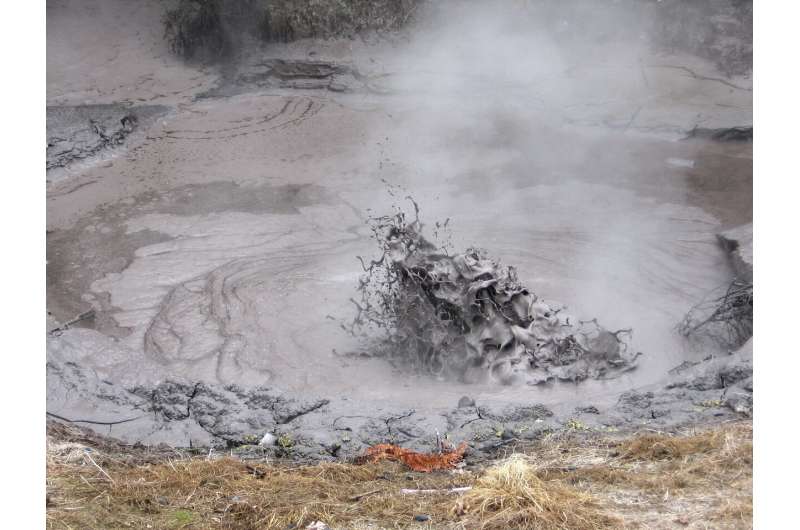New insight into the evolution of complex life on Earth

A novel connection between primordial organisms and complex life has been discovered, as new evidence sheds light on the evolutionary origins of the cell division process that is fundamental to complex life on Earth.
The discovery was made by a cross-disciplinary team of scientists led by Professor Buzz Baum of University College London and Dr. Nick Robinson of Lancaster University.
Their research, published in Science, sheds light on the cell division of the microbe Sulfolobus acidocaldarius, which thrives in acidic hot springs at temperatures of around 75 C. This microbe is classed among the unicellular organisms called archaea that evolved 3.5 billion years ago together with bacteria.
Eukaryotes evolved about 1 billion years later—likely arising from an endosymbiotic event in which an archaeal and bacterial cell merged. The resulting complex cells became a new division of life that now includes the protozoa, fungi, plants and animals.
Now a common regulatory mechanism has been discovered in the cell division of both archaea and eukaryotes after the researchers demonstrated for the first time that the proteasome—sometimes referred to as the waste disposal system of the cell—regulates the cell division in Sulfolobus acidocaldarius by selectively breaking down a specific set of proteins.
The authors report: "This is important because the proteasome has not previously been shown to control the cell division process of archaea."
The proteasome is evolutionarily conserved in both archaea and eukaryotes and it is already well established that selective proteasome-mediated protein degradation plays a key role in the cell cycle regulation of eukaryotes.
These findings therefore shed new light on the evolutionary history of the eukaryotes.
The authors summarize: "It has become increasingly apparent that the complex eukaryotic cells arose following an endosymbiotic event between an ancestral archaeal cell and an alpha-proteobacterium, which subsequently became the mitochondria within the resulting eukaryotic cell. Our study suggests that the vital role of the proteasome in the cell cycle of all eukaryotic life today has its evolutionary origins in archaea."
More information: "The proteasome controls ESCRT-III–mediated cell division in an archaeon" Science (2020). science.sciencemag.org/cgi/doi … 1126/science.aaz2532
Journal information: Science
Provided by Lancaster University





















